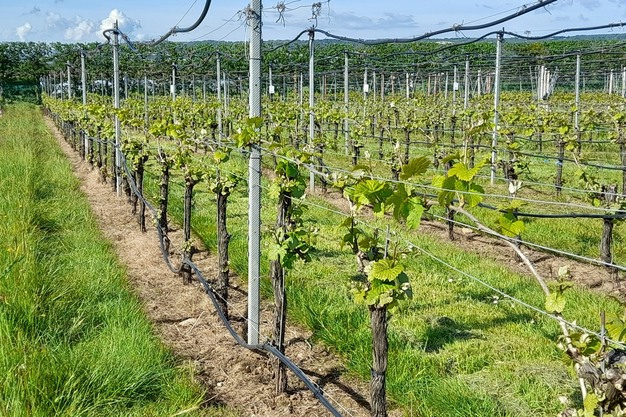Four businesses using technology to advance sustainable horticulture have been awarded £500,000 to commercialize their prototypes by Growing Kent & Medway.
Automation, robotics, and artificial intelligence will be harnessed to control pests and diseases in fruit and vine crops in two of the research projects. Two further projects will use advances in biotechnology to test the by-products of horticultural crops to create new sustainable food ingredients.
The funding was awarded through Growing Kent & Medway's Prototyping and Demonstrator competition, which was designed to develop and bring to market new technologies in the horticultural food and drink supply chain.
Dr Nikki Harrison, Director at Growing Kent & Medway, said: "This funding competition was designed to support business-focused innovative technology development that has the potential to be applied in a real-world commercial environment.

"These collaborative and innovative projects demonstrate how advances in agri-technology can help to make our food systems more sustainable. From using energy more efficiently and reducing inputs like crop protection chemicals, to increasing productivity and reducing food waste."
Machine learning to detect diseases in vineyards
Artificial intelligence and machine learning will be used to analyze satellite imagery to detect and predict the presence of plant diseases in UK vineyards. The project aims to identify the presence of important fungal diseases, like botrytis, and powdery and downy mildew, more effectively than current detection methods that use humans or drones. The nine-month project, led by Deep Planet, will be delivered with prominent UK wine producers and the Wine Innovation Centre at NIAB.
Sushma Shankar, Co-Founder of Deep Planet Ltd, said: "We applied for the Prototyping and Demonstrator Fund to help bring climate change resilience to vineyards in the Kent and Medway region. Our project will enable UK vineyards to proactively mitigate the impact of disease by detecting the type of disease and employing appropriate management strategies.
"This will help farmers to efficiently reduce their costs in mitigating the disease but also improve the yield and quality of the grapes. With UK's wine industry growing significantly, the benefits of this project will grow multifold, as we see it being integrated into regenerative and sustainable vineyard management practices."

Professor Dame Jessica Corner, UKRI SRO for the Strength in Places Fund said: "The projects announced today are excellent examples of how UKRI's Strength in Places Fund is being used to enable research to be applied impactfully for the economy and for society. It is exciting to see how robotics and AI can be used to tackle sustainability and reduce reliance on chemical pest deterrents, which has the potential to aid Kent's agricultural economy growth and influence industry standards."
The Prototyping and Demonstrator Fund competition closed in January 2024. Applicants were required to deliver an operational demonstration with a clear plan to scale the technology and take it to market.
For more information:
NIAB
www.niab.com
